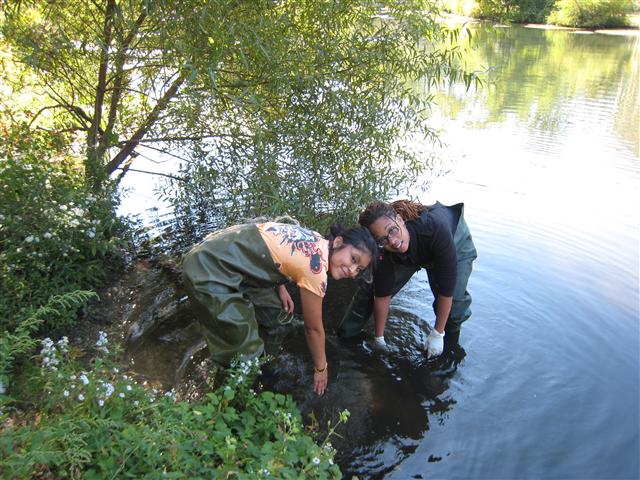Fellow: Jonelle Orridge
Course Purpose
Emphasizing science literacy and authentic research, the curriculum integrates hands-on authentic field experiments with reading and writing activities based on the CREATE methodology. It aims to boost students' confidence in their ability to understand and 'do' science, to develop their ability to read and analyze scientific papers, and to communicate the results of their work through poster presentations. This course is designed to serve as a bridge between regents-level and college level biology, and builds on ecological concepts learned in the Living Environment Regents course.
Course Description
“What if a child has never stood in a shallow pond and gotten her feet wet and hands muddy? What if he's never experienced the life of the pond swirling around his legs? …What if children never really touch and experience nature?” For many New York City children this “what if” is the reality. Many students are out of touch with nature and don't realize their own connection to and impact on their natural surroundings. The vast resources of our local urban wetlands are unnoticed and neglected. We need a new generation of urban biologists to study and preserve these resources for future generations. This specialized course introduces budding scientists to the science of wetland ecosystems. It uses inquiry-based activities to teach them about these precious resources and the methods scientists use to study and preserve them.

Course Outline
Unit 1 Wetland characteristics
Activity 1 Introducing Wetlands
Activity 2 - Wetland habitats
Activity 3 - Life in the Fast Lane - Importance of Temporary Wetlands
Activity 4 Introduction to Food Webs
Activity 5 How are Biotic and Abiotic Factors Observed in a Freshwater Ecosystem?
Activity 6 Virtual Pond
Unit 2 Water Quality Testing and Field Trips
Activity 7 How does Water Affect Life on Earth?
Activity 8 Water Quality - pH and Field trip #1
Activity 9 Effect of Salinity on Aquatic life and Field trip #2
Activity 10 Changes in Dissolved Oxygen in Water Bodies and Field Trip #3
Unit 3 Communicating Science
Activity 11 Parts of a Scientific Presentation - Methods and Results
Activity 12 Parts of a Scientific Presentation - Intro and Discussion
Activity 13 How to Create a Tri-fold Presentation board
Activity 14 Presentation of Research Projects
